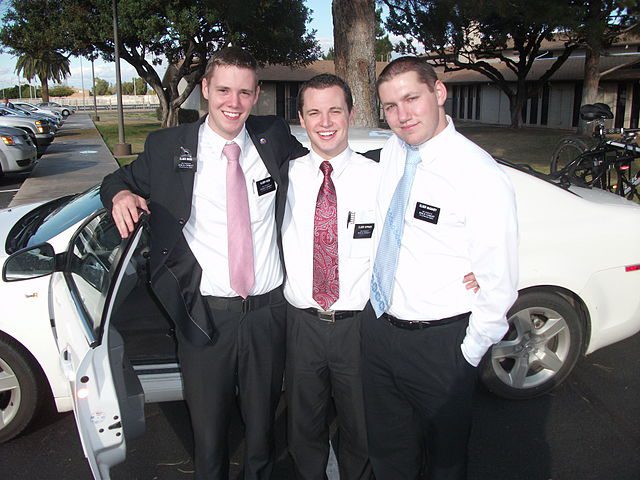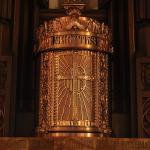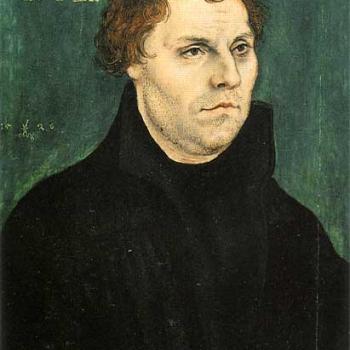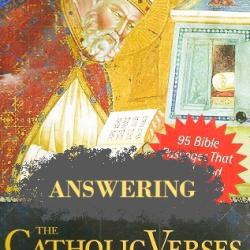
Heretical cults such as Mormonism are not theologically derived from Protestantism.
*****
As a former evangelical counter-cult researcher and evangelist myself, I disagree with statements by some Catholics about the ecclesiological category of Mormons and other heretical groups. Mormons are not Protestants by any reasonable definition of the word because they deny the Trinity and divinity of Christ.
They cannot be said to be “Protestant” simply because they accept private judgment or deny apostolic succession any more than Nestorians or Arians or Hussites were “Catholic” because they accepted bishops, baptismal regeneration, and the Real Presence. Similarity in some areas does not add up to equation.
At best Mormons can only be regarded as a radical corruption of Protestant tradition(s), in the same way as the early heresies did not organically develop from the Catholic Church. Nothing in orthodox, creedal and confessional Protestant theology proper even remotely resembles the weird, bizarre Mormon “god.”
One has to go back to the Gnostics to find similarities on that score. Even the NCC and WCC do not allow Mormons and other non-trinitarian sects in their membership, and they are not renowned as bastions of Protestant orthodoxy!
I would assert, however, that the Protestant “authoritative” principles of private judgment and absolute primacy of conscience have caused more heretical cults to spring up than I think would have otherwise. I believe that this is why so many such groups (most of the larger ones today) originated in America — one of the quintessentially Protestant countries (at least originally and through much of its history).
I’ve also pointed out that many of the founders of these cults — curiously — came from strict Calvinist backgrounds. Rejecting that error, they went to the other extreme and adopted an ersatz “rationalism” and denied God’s sovereignty and omniscience, thus spreading far worse errors. Error has a way of doing that.
So, although definitely not Protestant, virtually all of the “cults” we see today (most of which began in the last 150 years or so) did proceed from — shall we say — a Protestant milieu, far more than they could be said to have come from a Catholic ethos. Indeed, this may be essentially what many Catholics mean when they say they are “Protestants.”
America is the great haven of individualism and also pragmatism: the only indigenous American philosophy. So if something isn’t working, you try something else, and the individualism makes one person feel he can do such a thing as start a new denomination.
But then, if one goes deeper into analysis, and looks at the foundations of American thought and ideals; we were influenced by the so-called “Enlightenment” (especially Jefferson and Franklin and Paine), which was a rejection of Catholicism, and Protestantism (both Anglican and Reformed, but with many dissenting forms of Protestantism too).
The radical individualism of Luther was there from the beginning. It is part of the Protestant ethos. So in that respect, the new cult being founded by one person can trace a lineage to the principle of private judgment, which reigns in Protestantism. Such a person could say, “hey, Luther did it, why cannot someone else?”
There were plenty of heresies or “cults” during early Church history, too, of course, so that one might say that they “came out of” Catholicism. The difference I see, however, is that the early heresies were adopting a principle of authority that was clearly different from the mainstream Catholic Church (apostolic succession and the three-legged stool of Bible, Church, Tradition).
In America, however, the cultists are using the same principles of epistemology and authority that Protestantism has (sola Scriptura and private judgment and an even more radical a-historicism than the sort which pervades certain sectors of Protestantism). In that sense, and that sense alone, can they be said to be derivative from Protestantism.
And Protestantism itself splinters into hundreds of groups because of the deficiency of its principle of authority and the falsity of such concepts as sola Scriptura and perspicuity (clearness).
But the cults are not theologically derived from Protestantism. If, for example, the Christadelphians derived from Unitarianism (as one Christadelphian informed me), that is not Protestantism, as Unitarianism departed from Protestant orthodoxy, by rejecting trinitarianism. It is already a heresy, by both Protestant and Catholic standards.
Unitarians merely hearkened back to Arianism, which began in the 4th century, and mixed in some “Enlightenment” hyper-rationalism for good measure. Jehovah’s Witnesses and Christadelphians come from the same historical source. But they are not Protestant groups, and neither is Unitarianism.
***
(originally 11-15-02)
Photo credit: Mormon missionaries, out to change the world, complete with the famous black name tags. Photo by Thomasdavidruss (12-23-10) [Wikimedia Commons / Creative Commons Attribution-Share Alike 3.0 Unported license]
***













